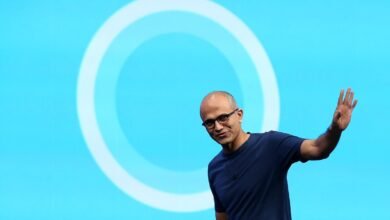OpenAI Teams with Broadcom to Develop Custom AI Chips

▼ Summary
– OpenAI is partnering with Broadcom to produce custom AI chips, reducing its reliance on Nvidia and powering AI applications like ChatGPT and Sora.
– The partnership will enable OpenAI to develop and deploy 10 gigawatts of custom AI accelerators, equivalent to the output of about 10 nuclear reactors.
– Broadcom is expected to start deploying equipment in the second half of 2026, with the deal set to finish by the end of 2029.
– This follows OpenAI’s recent deals with AMD and Nvidia, made possible after it altered its exclusive compute arrangement with Microsoft.
– Custom chip development is a growing trend among tech giants like Meta, Google, and Microsoft to secure supply lines and reduce dependence on Nvidia.
OpenAI has entered into a strategic partnership with Broadcom to design and manufacture custom artificial intelligence chips, marking a significant move to decrease its dependence on Nvidia and secure the immense computational resources required for advanced AI systems. This collaboration aims to develop specialized hardware that integrates OpenAI’s deep experience in creating cutting-edge models, potentially unlocking new levels of performance and intelligence for applications such as ChatGPT and Sora.
Under the agreement announced this week, OpenAI will work with Broadcom to deploy 10 gigawatts of custom AI accelerators. To grasp the scale of this undertaking, consider that a single gigawatt approximates the output of a standard nuclear power plant. This immense capacity underscores the computational demands of training and running next-generation AI models.
Broadcom is scheduled to begin installing equipment racks in the latter half of 2026, with the entire project expected to conclude by the end of 2029. OpenAI’s co-founder and CEO, Sam Altman, described the partnership as a crucial milestone. He emphasized that building this foundational infrastructure is vital for harnessing AI’s full potential and delivering tangible advantages to both people and enterprises.
This new initiative follows other substantial compute agreements OpenAI has recently secured, including a six-gigawatt arrangement with AMD and another 10-gigawatt deal with Nvidia. The ability to form these diverse infrastructure partnerships became feasible only after OpenAI modified its previously exclusive AI compute arrangement with Microsoft.
The drive to create proprietary chips reflects a broader industry trend among leading technology firms. Companies like Meta, Google, and Microsoft are all actively pursuing their own custom silicon designs. Their goals are twofold: to strengthen critical supply chains in the face of skyrocketing demand and to lessen their strategic reliance on Nvidia’s dominant AI hardware. While these in-house chip projects have not yet emerged as a direct challenge to Nvidia’s market supremacy, they have provided a substantial financial boost to other semiconductor companies, including Broadcom.
(Source: The Verge)




